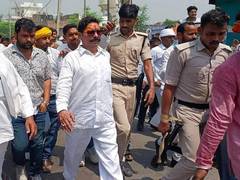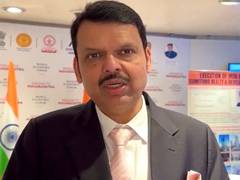One nation, one election ‘weapon of mass distraction’: TMC’s Derek O’Brien
New Delhi, Dec 14 (PTI) The Centre’s decision to bring a bill on simultaneous elections is aimed at diverting attention from important issues like unemployment and inflation, Trinamool Congress (TMC) leader Derek O’Brien said on Saturday, calling the proposed step a “weapon of mass distraction”.
In a post on his blog, the TMC Parliamentary Party leader in the Rajya Sabha claimed that the “One Nation, One Election (ONOE)” proposal is to “distract from the real issues: unemployment, inflation, anti-federal policies, Manipur, a plummeting rupee, fuel prices not being cut despite a decline in global crude oil prices and more”.
“The ONOE is another ‘Weapon of Mass Distraction’!” O’Brien said in his blog.
The TMC has objections to the proposal and party chief and West Bengal Chief Minister Mamata Banerjee has said her MPs will oppose the “draconian legislation tooth and nail in Parliament”.
O’Brien said the bill is very similar to the Women’s Reservation Bill that was passed last year.
“The news stayed on prime time, tucking away the government’s ineffectual handling of the Manipur crisis,” he said.
“The Women’s Reservation Bill can only come into effect after the Census and delimitation exercise have been completed. So, the earliest that it can happen is 2034,” he said.
O’Brien said the High Level Committee (HLC) on ONOE, headed by former president Ram Nath Kovind, has recommended 18 amendments to the Constitution and other statutes of Union territories that have legislative assemblies.
He said this would require a Constitution amendment bill to be passed in Parliament with a special majority — a majority of the total membership of the House and a majority of not less than two-thirds of the members of the House present and voting.
He added that under Article 368(2) of the Constitution, ratification by not less than half of the states will be required to carry out amendments to Article 324A to facilitate simultaneous elections to panchayats and municipalities.
Similarly, in order to have a single electoral roll, an amendment to Article 325 is required and to implement this amendment, ratification by not less than half of the states would be required, O’Brien said.
He said the HLC on simultaneous polls did not include a single chief minister or representative of the states and added that since any constitutional amendment to implement simultaneous elections would directly impact the tenure of state assemblies and governments, the Centre should still seek ratification from at least half of the states as a matter of abundant caution.
The TMC leader said a study conducted by the IDFC Institute has shown that there is a 77-per cent possibility of voters voting for the same party at the Centre and states if simultaneous elections take place.
The Centre has listed two bills related to “one nation, one election” for introduction in the Lok Sabha on Monday.
Union Law Minister Meghwal will introduce the Constitution (129th Amendment) Bill and the Union Territories Laws (Amendment) Bill in the Lower House.






